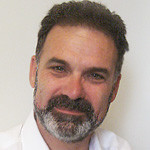Atul Gawande’s latest gem: Hospice care and our end-of-life wishes
piece about end-of-life care in the is��another gem��by the surgeon-writer-health policy wonk and staff member at Harvard-affialiated Brigham and Women’s Hospital in Boston.
In an online��chat��after the article was published, Gawande said he had the usual��preconceived notions about hospice before he��started researching the article:
Telling a patient that you’d like them to consider hospice now seems to people like you’re telling them that you want to “give up��. “Hospice��=”morphine drip�� to many people. It more or less did to me, until I actually had a chance to see what hospice was.
Gawande��finds out, of course,��that hospice is neither��the morphine drip nor��withdrawal of care but��care with different goals. And he��refers to research showing that��hospice��actually extends the lives of some people (remember��).����A nice line from the article:
The lesson seems almost��Zen: you live longer only when you stop trying to live longer.
He��follows��several��patients through their illness and eventual death.��The story of a young mother with lung cancer��is the most affecting, and it��shows that,��despite��everybody’s��best intentions, some��people in the last stages of an illness��endure��the ordeal of tests, more tests, and��treatment after treatment, all of it��accomplishing little.
But Gawande doesn’t oversimplify.��With��another patient story he��illustrates the difficulty of coming��to terms with��illness or, perhaps more precisely, with��death—even after receiving hospice care.��When a��woman��with congestive heart failure and pulmonary fibrosis suffers cardiac arrest, her family calls 911, not the hospice service, because that is what she wanted.��Emergency medical technicians rush in, shock her heart and intubate her (put a tube down her throat in attempt to get more air into her lungs),��to no avail.
Looking for solutions to the “seemingly unstoppable momentum of medical treatment,”����Gawande pays a visit to La Crosse, Wisconsin,�� because of its low��end-of-life hospital costs. ��A��there�� has��encouraged��doctors and patients to discuss end-of-life issues. When��something similar was proposed in the federal health-care reform legislation, opponents characterized it as promoting the creation of “death panels,�� and it was removed from the bill.
He also talks to ,��an expert in��end-of-life care at his hospital about how��doctors should talk to patients who are facing a terminal illness.��Talk is part of the problem:��Gwande finds out from his colleague that��doctors do too much of it.�� Part of��Block’s advice is to sit down, take time, and not focus so much on expounding on treatment X vs. Y but on learning what’s important to patients.��Gawande writes:
This requires as much listening as talking. If you are talking more than half of the time, Block says, you’re talking too much.
Of course,��conversations about end-of-life wishes��are not limited to doctors and patients. They also happen—or don’t but should—among families and loved ones.��This is not��easy terrain. There’s uncertainty, a welter of medical technicalities, and, as��Block points out, the acceptance of mortality. Now add in all the��swirling emotions and complexities��of family and love relationships—well, little��wonder��we struggle to have such��converations.
Gawande ends the��the��on-line chat��by talking about his father, who is also a surgeon, and the treatment choices he was facing for a spinal cord tumor. Gawande’s father��started to develop early signs of quadriplegia as the tumor grew, but��an operation to create more space for the tumor had a 20% chance of quadriplegia. Gwande says:
I remember, we sat in the living room and I simply began by saying that it would help me if I understood some things about his priorities and wishes. And then I ran through some of Susan Block’s list: if things get bad, what is he willing to go through to stay alive? If options become limited, what is the way he wants to spend his time? What’s most important to him, knowing the tumor is eventually not curable? Those kinds of incredibly hard questions. Some he was ready to answer. Some not.
There’s the strong suggestion that��Gawande’s father��decided not to have the��operation.
��
��
About the Author

Peter Wehrwein, Contributor, �첩����
Disclaimer:
As a service to our readers, �첩���� Publishing provides access to our library of archived content. Please note the date of last review or update on all articles.
No content on this site, regardless of date, should ever be used as a substitute for direct medical advice from your doctor or other qualified clinician.















